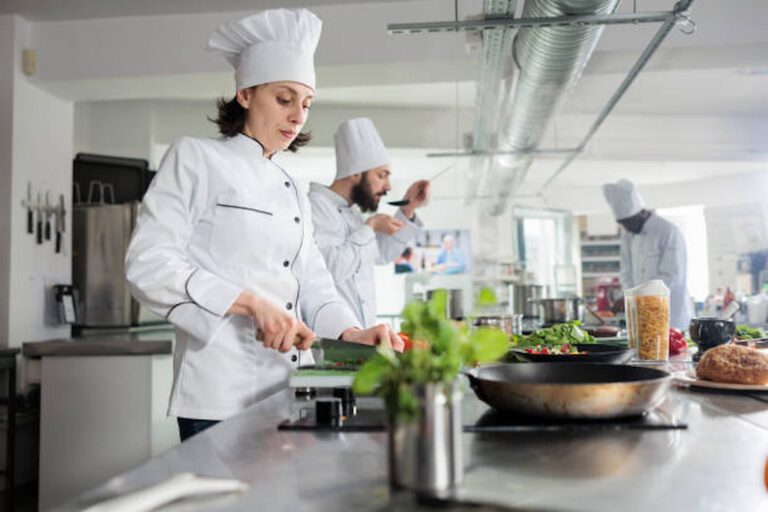Cooking shows like MasterChef have changed the way we think about and enjoy food, inspiring millions to tap into their culinary potential. Learn how these shows shape modern food culture and empower amateur chefs around the world.
Introduction
TV always has been such a huge influencer in our daily lives, but among those genres, probably none has touched our lives so tangibly as cooking shows. Among those cooking shows, one stands out- MasterChef is a cultural phenomenon that fuses cooking art with drama competition. Far from just entertaining, the programs have revolutionized the way people perceive food and have fostered a love for culinary arts within different segments of society.
Cooking shows inspire people to experiment with ingredients, learn new techniques, and explore cuisines worldwide. This transformative effect goes beyond individual households, influencing trends in the restaurant industry, food blogging, and even global culinary tourism. With personalities like Aruna Vijay MasterChef finalists, these shows prove that anyone can turn a love for cooking into a celebrated craft.
How Cooking Shows Have Redefined Culinary Culture
Cooking shows are no longer just about professional chefs. Today, they feature home cooks from all walks of life, and the success of culinary arts seems to be within everyone’s reach. This has changed the way society perceives food and cooking in several ways:
- Elevating Home Cooking: Cooking shows encourage people to embrace home-cooked meals by making gourmet techniques accessible.
- Cultural Exchange: They introduce audiences to international cuisines, broadening culinary horizons.
Encouraging Sustainability: Many programs focus on local and sustainable ingredients, encouraging people to cook responsibly.
The Amateur Chef Revolution
The appeal of shows like MasterChef is in their ability to inspire amateur chefs. Contestants often come from non-culinary backgrounds, which makes them authentic and relatable. Their stories are inspiring for viewers, nudging them toward the first step toward culinary excellence.
Aspiring chefs learn:
- Confidence: The pressure of cooking brings resilience and creativity.
- Knowledge: They get exposure to different ingredients and techniques.
- Opportunities: Most contestants use the platform to enter food careers. Examples include opening restaurants, writing books, or being food influencers.
How Food Shows Influence Global Trends
Food shows are more than entertainment; they help create global food trends. The ingredients and dishes are brought forth into mainstreams that are unheard of. Thus, the appetite and interest build.
Fusion Cuisines on the Rise
Many a cooking competitions display fusion recipes, collating flavors and techniques from other cuisines. This trend has influenced many menus worldwide, and fusion food is a staple of modern dining.
The Food Tourism Boom
Cooking shows also stir the interest in food tourism since it enables people to get an inside look into a destination by displaying their delicacies. From street food tours in Bangkok to the experience with vineyard in Tuscany, food has now taken center stage in travel destinations.
The colorful images of food have been the driving force behind the popularity of Instagram and TikTok. Cooking shows often set the tone for what trends on social media, and dishes like cronuts, soufflé pancakes, and rainbow bagels become viral.
Lessons from Cooking Shows for Everyday Food Enthusiasts
Even if you don’t aspire to become a professional chef, there’s much to learn from the world of competitive cooking:
- Experimentation Is Key: Don’t be afraid to try new ingredients or techniques.
- Presentation Matters: It enhances the dining experience.
- Time Management: Cooking shows teach how to work efficiently under pressure.
- Value Quality: Buy fresh, good-quality ingredients that will give a better result
Cooking Shows and Society
Cooking shows tackle societal issues ranging from food insecurity to sustainable farming. Bringing these on the frontlines helps raise public awareness and promotes change.
Promote Diversity and Inclusion
Shows like MasterChef celebrate people of different cultures that come from the culinary world. Inclusiveness of this diversity is what enhances the competition while celebrating cuisines otherwise overlooked.
Highlight Food Waste
Shows sometimes try to address food waste through encouraging the participant and audience members to utilize the entire part of an ingredient. This really impacts the viewer as it spreads awareness about being a sustainable food person.
Conclusion
Cooking shows have changed the way we think, cook, and eat. They have democratized the culinary arts, making them accessible to anyone willing to learn and experiment. Whether you are a seasoned cook or a beginner, these shows offer a treasure trove of inspiration and knowledge that can elevate your culinary journey.
From empowering amateur chefs to sparking global trends, cooking shows like MasterChef have proven that food is more than just sustenance—it’s a universal language that brings people together. With personalities like Aruna Vijay MasterChef, these programs remind us that passion and creativity are the most important ingredients in any recipe for success.
As the culinary world continues to evolve, cooking shows will undoubtedly remain at the forefront, inspiring new generations of food enthusiasts and shaping the future of modern cuisine. So, whether you’re tuning in for tips or simply for entertainment, there’s always something to take away from the dynamic world of cooking competitions.
